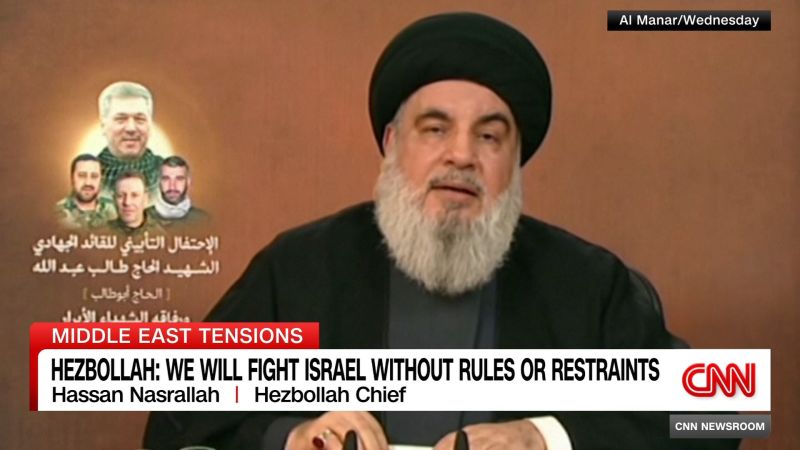
Hezbollah and Israel Engage in Escalating Conflict: A Threat to Regional Stability
Recent tensions between Hezbollah and Israel have escalated, leading to a series of cross-border attacks that have raised concerns about the potential for a wider conflict in the Middle East. The Lebanese militant group has threatened Cyprus if it provides support to Israel, while Israeli forces continue to strike Hezbollah targets in Lebanon.
Background: Hezbollah's Military Capabilities and History of Conflict with Israel
Hezbollah, a Shia Muslim militant organization based in Lebanon, has been engaged in conflict with Israel since the late 1980s. The group is backed by Iran and has a large stockpile of drones, a surplus of fighters, and new weapons.
In October 2020, Hezbollah began attacking Israel across the border in support of Hamas in Gaza. Since then, there have been numerous reports of Israeli military strikes on Hezbollah sites in Lebanon and along the southern Lebanon border area.
Hezbollah's Threats to Cyprus and Israel: Implications for Regional Stability
On June 20, 2024, Hezbollah leader Hassan Nasrallah warned Israel that if the conflict along the Lebanese-Israeli border escalates into a war, Israeli forces would face a much more powerful enemy than in the past. Nasrallah also threatened Cyprus for hosting Israeli military maneuvers and allowing Israel to use its air bases.
Cyprus, an EU member but not of NATO, has been keen to dispel any suggestions that it is implicated in the Gaza war and has focused on its humanitarian efforts to help bring aid into Gaza. In March 2024, Cyprus began allowing aid ships to sail from its ports as part of international efforts to create a humanitarian aid route via sea toward Gaza.
The Mediterranean Sea as a Potential Target: Implications for Regional Powers and Interests
Nasrallah also warned that the Mediterranean Sea would become a target in any war. This could have significant implications for regional powers such as Greece, Turkey, and the United States, which have important economic and strategic interests in the Eastern Mediterranean.
The Role of Iran: Supporting Hezbollah and Escalating Tensions with Israel
Iran's involvement in supporting Hezbollah has been a major factor in the escalating tensions between Israel and Lebanon. The United States, which is a close ally of Israel, has warned against further escalation in Lebanon and called for diplomatic resolution.
Conclusion: The Potential Consequences of Escalating Conflict between Hezbollah and Israel
The potential consequences of a wider conflict between Hezbollah and Israel could be significant, with implications for regional stability, the security of European powers, and the strategic interests of major global powers. It is essential that all parties involved work to de-escalate tensions and find a diplomatic solution to prevent further violence.






